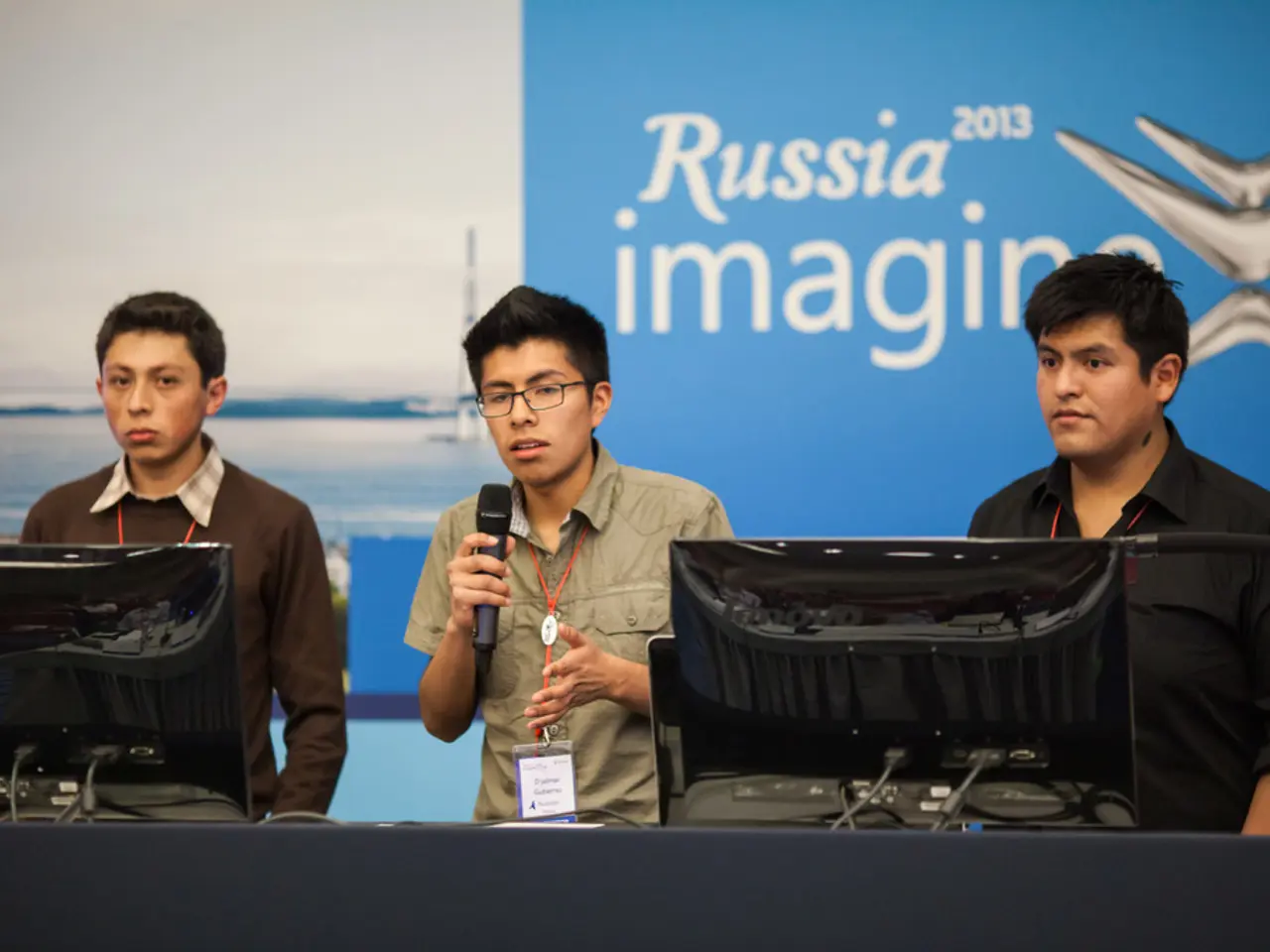Zelenskyy declines formally relinquishing territory before Trump-Putin discussions commence
In the heart of Europe, a contentious issue is at the forefront of peace negotiations between Ukraine and Russia: land concessions. The Kremlin, under the leadership of President Vladimir Putin, is insisting on Ukraine making territorial concessions as a precondition for lasting peace, a stance that has been met with resistance from Ukrainian President Volodymyr Zelenskyy.
Russia's demands aim to eliminate what it views as the root causes of the conflict, including security concerns over NATO and recognition of Russian-held territories such as Crimea and parts of Donbas. Putin and Russian officials also demand that Ukraine abandon its ambitions to join NATO and adopt a neutral status guaranteed by mutual agreements. Russia’s war aims remain unchanged despite ongoing negotiations.
On the other hand, Ukraine, led by Zelenskyy, vehemently opposes any territorial concessions without Ukrainian consent. Zelenskyy has stated that no land will be "gifted to the occupiers" and that any decisions on territory must be made by Ukraine itself with binding security guarantees from the US and allies. In a bold move, Zelenskyy has even offered to resign if it means securing NATO membership for Ukraine, highlighting the importance Kyiv places on alliance security commitments over territorial compromise.
The United States and Western Europe find themselves divided or cautious on the issue. While former US President Donald Trump publicly aligned with Putin’s view advocating for territorial concession by Ukraine, European and Ukrainian officials view concessions skeptically due to Russia’s track record of escalating demands after each prior territorial gain. Recent talks, such as the 2025 Anchorage summit between Trump and Putin, failed to produce a ceasefire or any concrete peace agreement, and doubts remain about what "points of agreement" Trump claims exist.
The current deadlock reflects deep underlying issues surrounding Ukraine’s sovereignty, territorial integrity, and European security architecture, with no clear resolution currently achieved. However, the president of the European Union and leaders of several European countries have issued a joint statement in support of Ukraine and ending the war. European and Ukrainian officials have also met with US Vice President JD Vance in England to discuss ending the more than three-year war.
The upcoming summit between Trump and Putin, scheduled to occur on US soil, may be pivotal in resolving this conflict that began when Russia invaded Ukraine, leading to tens of thousands of deaths. Yet, doubts persist about the nature of the negotiations, with no details given by Trump about the "swapping of territories" he mentioned in his comments at the White House. Reactions in Kyiv to the idea of Ukraine ceding territory to Russia range from skepticism to quiet resignation.
As the world watches, the fate of Ukraine hangs in the balance, with the hope that diplomacy and compromise can prevail over conflict and territorial ambitions.
*References*
- BBC News
- The Washington Post
- The New York Times
War-and-conflicts continue to dominate political discussions and general news, as the ongoing dispute between Ukraine and Russia over territorial concessions remains unresolved. The United States and Western Europe are divided on the issue, with some officials advocating for territorial concessions while others emphasize the importance of Ukraine's sovereignty and territorial integrity. Despite doubts and concerns, the upcoming summit between Trump and Putin on US soil may offer a chance for diplomatic compromise and an end to the more than three-year war.





